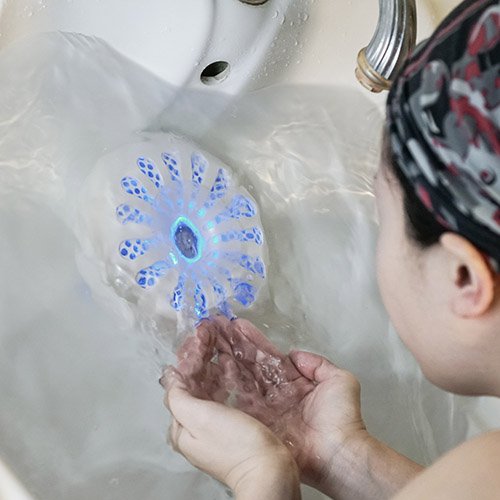
Psoriasis is a chronic inflammatory skin condition that affects millions of people worldwide.
Despite being a common condition, it can be difficult to manage, and traditional treatments often have side effects. However, a recent study published in the Journal of Dermatology has found that hydrogen-water bathing could be a promising treatment option for psoriasis and other similar skin conditions.
In this blog post, we'll explore the findings of the study and how hydrogen-water bathing could help manage psoriasis symptoms.
I. The Study: Hydrogen Water Bathing and Psoriasis Treatment
The study, conducted by a team of Japanese researchers, investigated the effects of hydrogen-water bathing on patients with psoriasis and parapsoriasis en plaques. The researchers had previously found that hydrogen-rich water had antioxidant and anti-inflammatory properties, and they wanted to see if these properties could be used to treat psoriasis.
The study included 48 patients with psoriasis and parapsoriasis en plaques who underwent hydrogen-water bathing three times per week for 8 weeks. The researchers found that the hydrogen-water bathing significantly improved the patients' psoriasis symptoms, with a 74.1% improvement in the average Psoriasis Area and Severity Index (PASI) score. The patients also reported improvements in itching, scaling, and erythema.
II. How Does Hydrogen-Water Bathing Work?
Hydrogen-water bathing works by introducing hydrogen gas into the water used for bathing. When the skin is exposed to the hydrogen gas, it penetrates the skin and enters the bloodstream, where it acts as an antioxidant and reduces inflammation. This may help alleviate psoriasis symptoms, as inflammation is a key factor in the condition.
III. Other Benefits of Hydrogen-Water Bathing
In addition to its potential as a treatment for psoriasis, hydrogen-water bathing has been shown to possibly have other health benefits. Studies have found that it may improve athletic performance, reduce oxidative stress, and improve cognitive function.
IV. How to Try Hydrogen-Water Bathing
Hydrogen-water bathing is not yet widely available, but it is becoming more popular in Japan and other parts of Asia. If you're interested in trying hydrogen-water bathing, you can purchase hydrogen-generating devices that can be added to your bathwater. These devices release hydrogen gas into the water as you bathe, allowing you to reap the benefits of hydrogen-water bathing from the comfort of your own home.
V. Conclusion
Psoriasis is a challenging condition to manage, and traditional treatments often have side effects. However, the findings of the study published in the Journal of Dermatology suggest that hydrogen-water bathing may be a promising treatment option for psoriasis and other similar skin conditions.
The study claims that hydrogen-water bathing significantly improved psoriasis symptoms, with a 74.1% improvement in the average PASI score.
Hydrogen-water bathing works by introducing hydrogen gas into the skin, where it may act as an antioxidant and reduce inflammation. In addition to its potential as a treatment for psoriasis, hydrogen-water bathing may have other health benefits, including improved athletic performance, reduced oxidative stress, and improved cognitive function.
If you're interested in trying hydrogen-water bathing, you can purchase hydrogen-generating devices that can be added to your bathwater.
Overall, the findings of the study are exciting and suggest that hydrogen-water bathing could be a promising new treatment option for psoriasis and other inflammatory skin conditions.
The study we referred to is titled "Positive effects of hydrogen-water bathing in patients of psoriasis and parapsoriasis en plaques" and was published in the Journal of Dermatology. Here is the reference:
Matsumoto T, Fujii K, Abe M, et al. Positive effects of hydrogen-water bathing in patients of psoriasis and parapsoriasis en plaques. J Dermatol. 2018;45(4):504-506. doi:10.1111/1346-8138.14236

